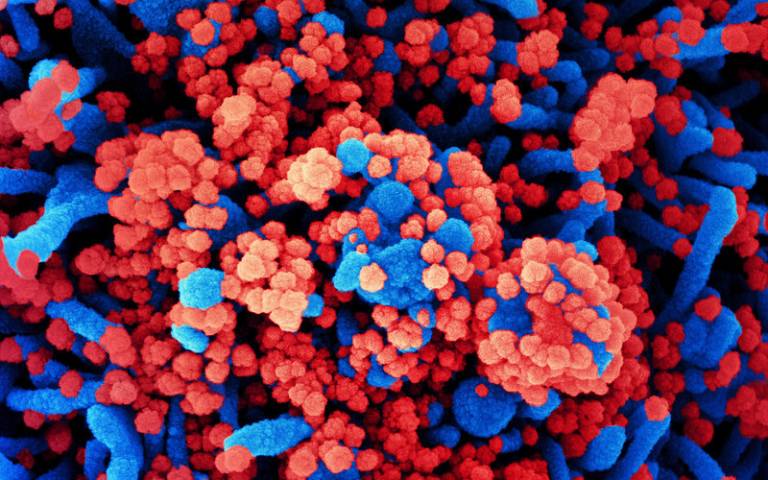Scientists aim to unravel immune system’s response to COVID-19
31 August 2020
UCL is playing a major role in the COVID-19 Immunology consortium (UK-CIC), one of three new UK-wide studies, which aim to better understand the immune response to the novel coronavirus.

UK-CIC has received £6.5m funding from the UK Research and Innovation (UKRI) and the National Institute for Health Research (NIHR) to bring together leading immunologists from 17 UK research institutions including UCL to study the cellular immune response to COVID-19.
Working together the researchers aim to better understand the body’s immune response to SARS-CoV-2 and will develop tests to define immunity to the virus. The scientists will also try to understand why some people suffer from severe life-threatening COVID-19 while others have mild or asymptomatic infections but can still transmit the virus. Importantly these studies will determine when and how immunity persists or whether people can become re-infected.
Together, it is hoped these studies will improve the treatment of patients and inform the development of vaccines and therapies.
The UK-CIC will receive investigate key questions including:
- How long does immunity from COVID-19 last?
- Why are some people’s immune systems better able to fight off the virus?
- Why do some people’s immune responses cause damage, especially to the lungs?
- How does the virus ‘hide from’ the immune system and how can this be tackled?
- Does immunity to previous infection with seasonal coronaviruses (which cause the common cold) alter a person’s outcome with SARS-CoV-2?
Professor Mala Maini is one of five immunologists making up the operational team; she will coordinate a theme bringing researchers from several centres of excellence together to focus on the role of cross-reactive T cells in COVID-19. This theme will ask whether pre-existing T cell immunity to closely related coronaviruses (that cause the common cold) can influence the highly variable outcome of infection with SARS-CoV-2 in different age-groups and geographic regions.
Professor Hans Stauss and Professor Benny Chain will investigate in detail the genetic profile of immune cells that can selectively kill cells infected with the Sars-CoV-2 virus. They will identify the receptors that the immune cells use to specifically recognise and kill the infected cells. The researchers will also explore whether the identified receptors can be used for gene therapy of COVID-19 by re-programming a large number of immune cells to attack Sars-CoV-2 infected cells.
A better understanding of these immune responses, particularly the T cell response, could provide targets for new therapies to treat COVID-19 and inform the efforts to develop a vaccine.
The project will use samples and data from major UK COVID-19 projects already underway, and funded by UKRI and NIHR, including ISARIC-4C (characterizing and following more than 75,000 hospitalized patients with COVID-19) and the genomic studies COG-UK (sequencing the SARS-CoV-2 virus genomes) and GenOMICC (sequencing the genomes of people with COVID-19).
Professor Maini, a viral immunologist, said: "This consortium is bringing immunologists from around the country together to coordinate our studies in an unprecedented manner. By sharing reagents, samples, ideas and early findings, we will accelerate our progress in addressing vital questions about how the immune response dictates the outcome of SARS-CoV-2 infection and what level of ongoing protection (immune memory) can be achieved.
Links
- Profile: Professor Mala Maini
- Profile: Professor Hans Stauss
- Profile: Professor Benny Chain
- Profile: Professor Arne Akbar
- UK Coronavirus Immunology Consortium
- UKRI
- NIHR
- British Society for Immunology
- ISARIC-4C
- COG-UK
- GenOMICC
Image
'Novel Coronavirus SARS-CoV-2. Colorized scanning electron micrograph of a cell (blue) heavily infected with SARS-CoV-2 virus particles (red), isolated from a patient sample.' Credit: NIAID/NIH via Flickr
Further information
- Source: UCL News
- Media Contact: Henry Killworth, Tel: +44 7881 833274
 Close
Close

